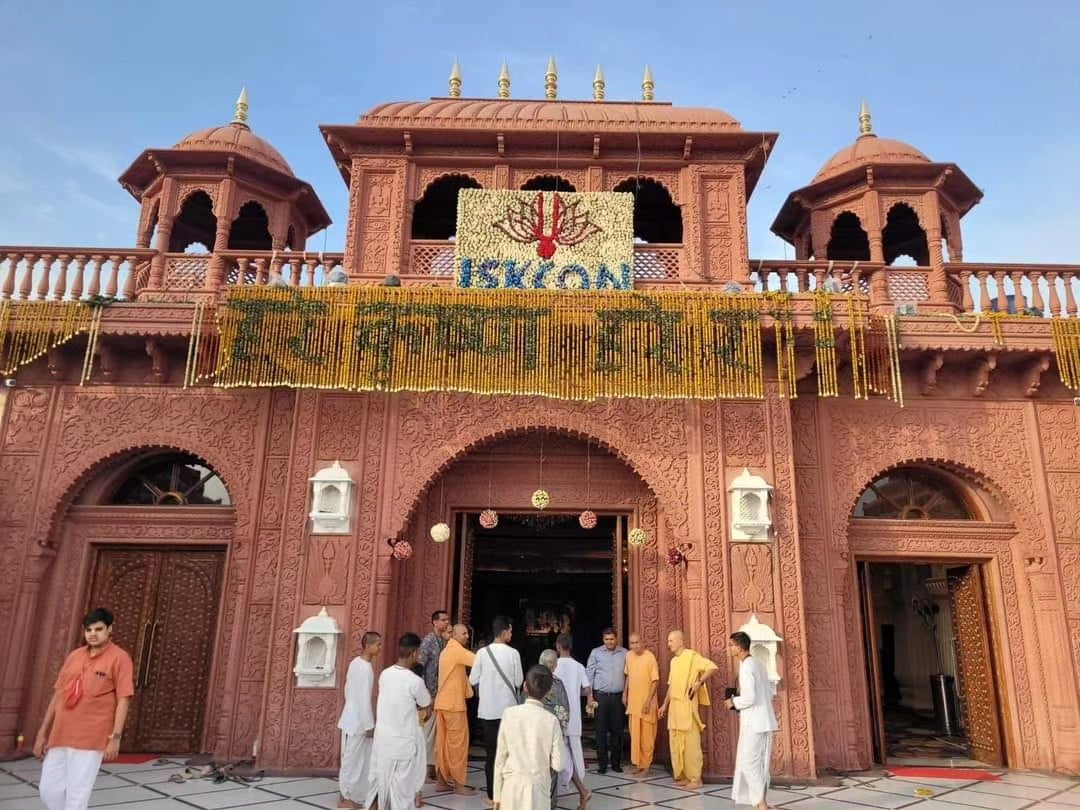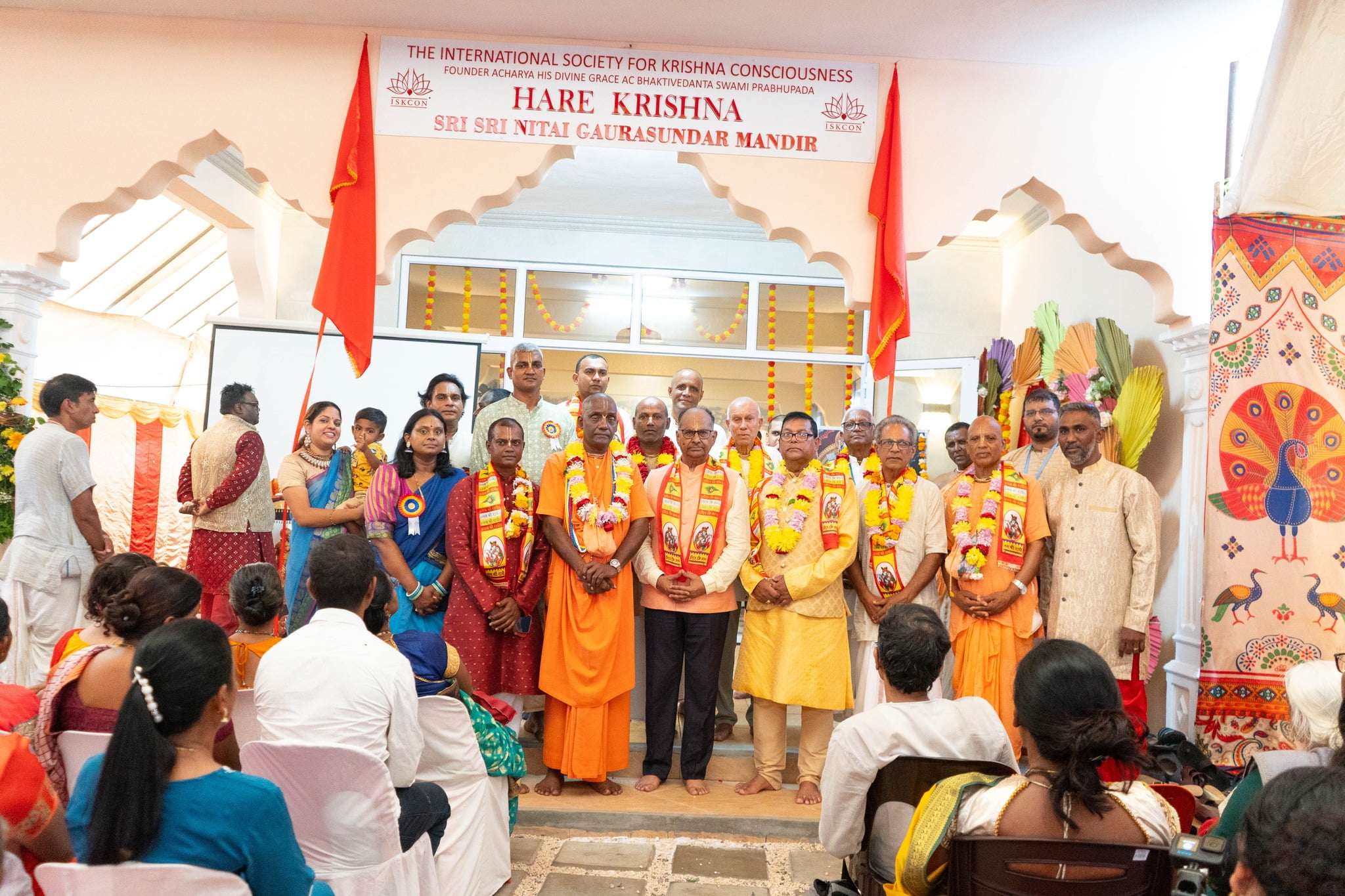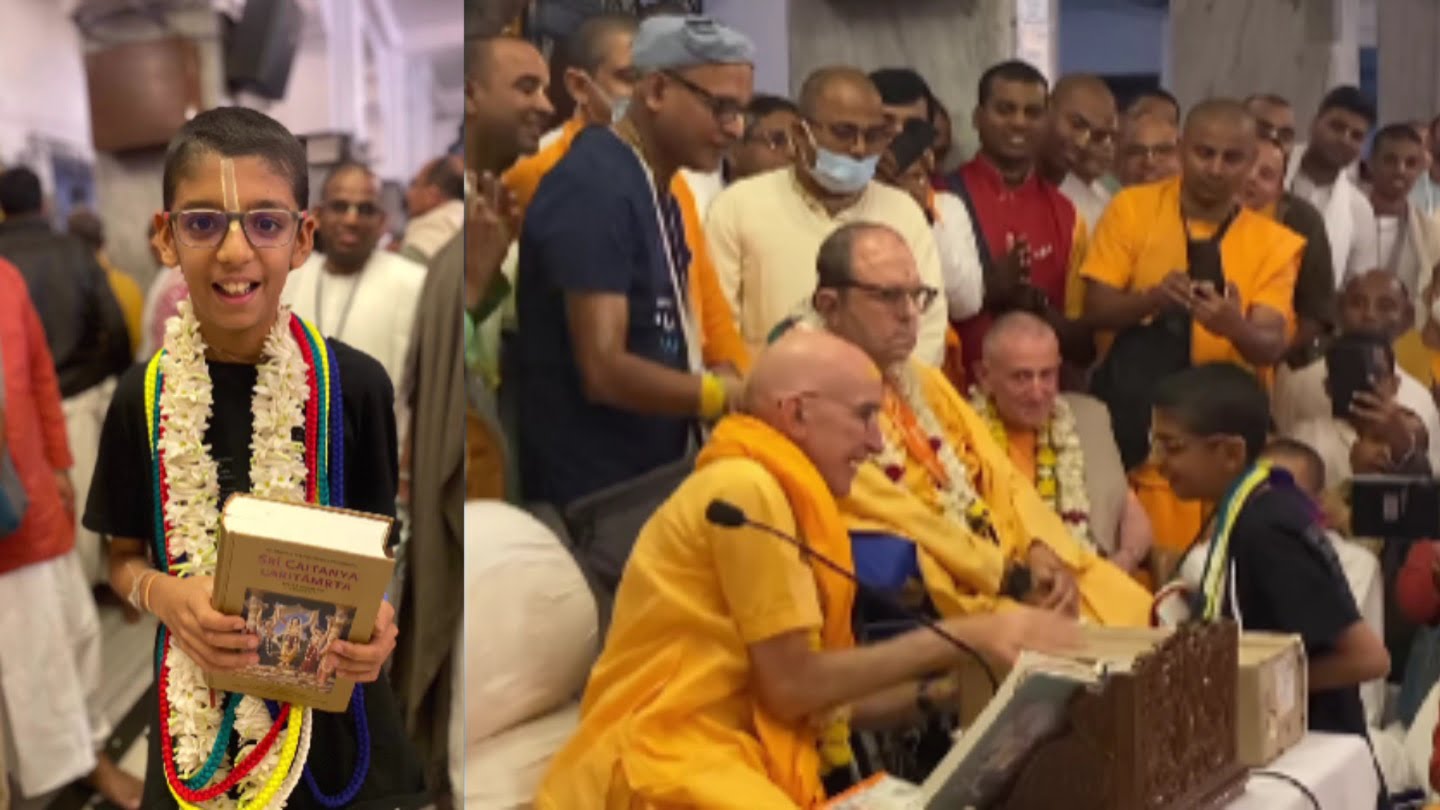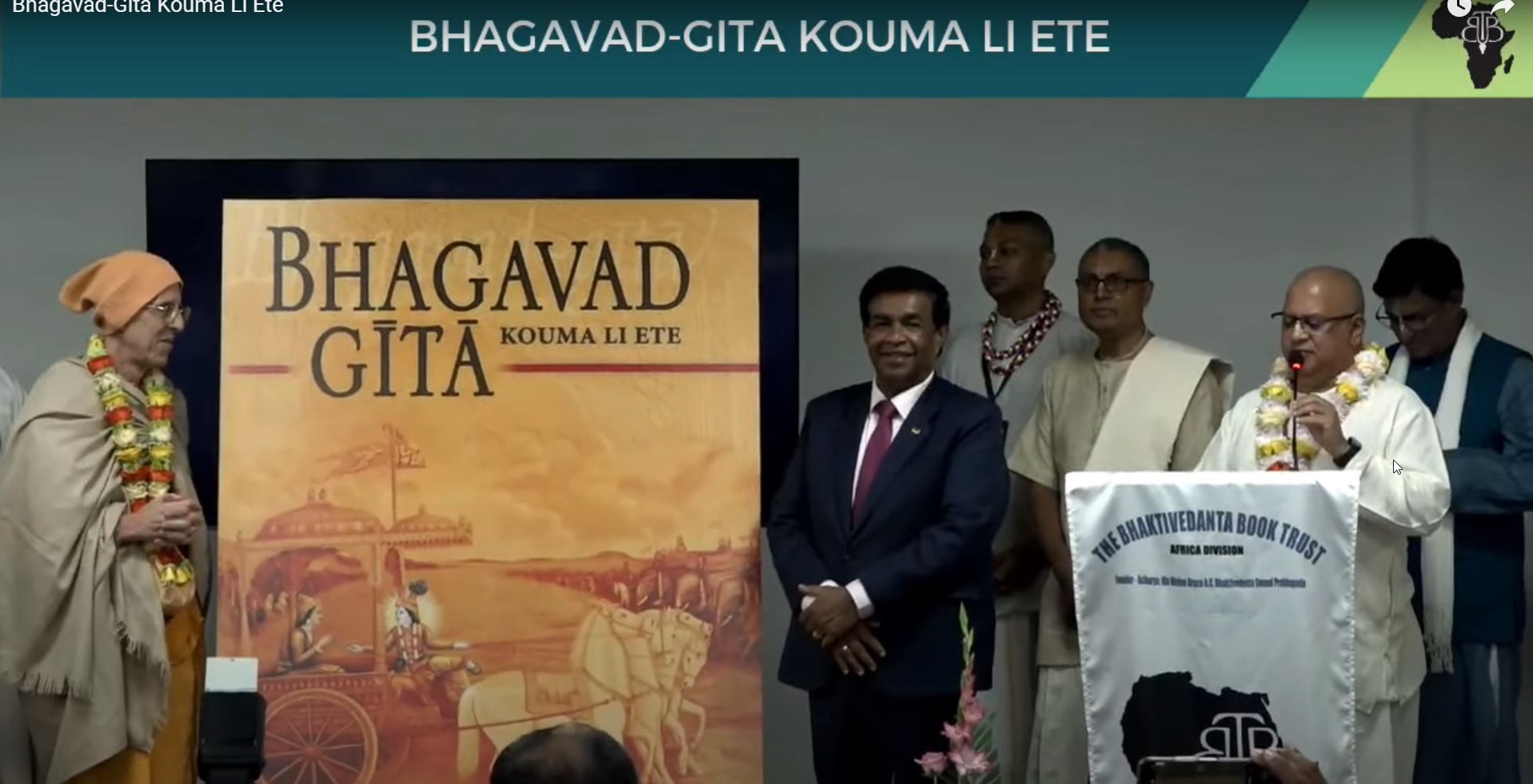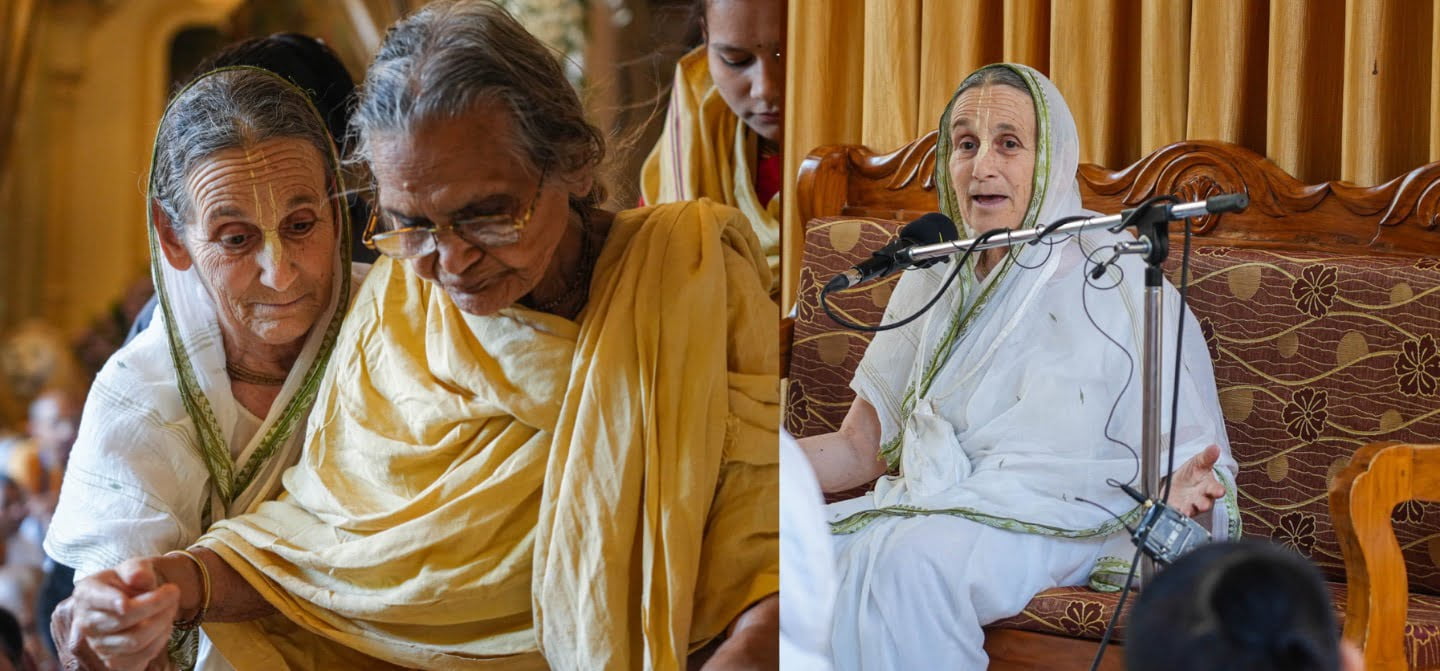Government Accredited Mayapur School Continues Expansion
By Madhava Smullen | May 01, 2015
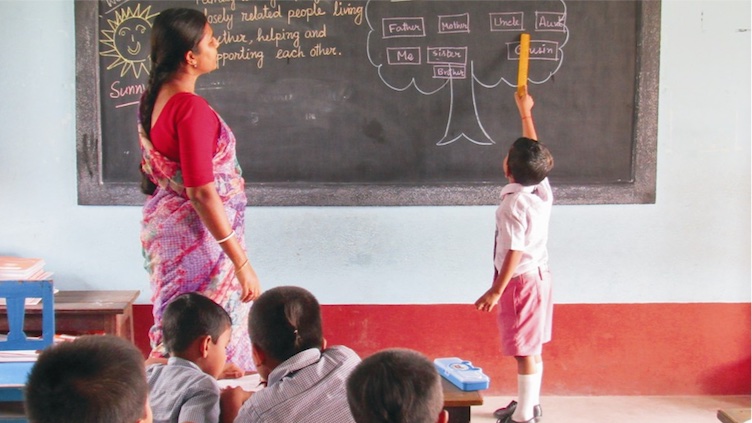
After being officially affiliated with the Central Board of Secondary Education (CBSE) in Delhi in July 2014, the Bhaktivedanta National School at ISKCON’s headquarters in Mayapur, West Bengal continues to expand its operations.
The school has ensured that teachers’ qualifications and salaries meet with CBSE requirements, and is now undergoing a series of physical improvements and additions.
Twelve CCTV surveillance cameras were recently installed throughout the school as recommended by the CBSE Board after the 2014 attack on a school in Peshawar, Pakistan.
Now, the Mayapur school is constructing a new floor with four additional classrooms and four staff rooms, and will be introducing a biometric attendance system soon.
It also plans to set up the Digital Smart Class Room in fourteen classrooms by the end of this month. With a projector and interactive white board, this systems enables teachers to use digital educational resources such as animation, videos, diagrams and 3D graphics.

Morning assembly
The school also has plans to construct two additional buildings in the future.
Of course, the Bhaktivedanta National School is just one of four schools in ISKCON Mayapur along with the Sri Mayapur International School, which combines an academic curriculum from Cambridge, England with spiritual studies; and two Gurukulas for primarily brahminical training.
But the National School fulfills its own unique and urgent need – that of an affordable English medium school for the Navadvipa block of Nadia District, where 86% of the population live in villages.
Starting in 2003 with just two teaching staff and twenty-two students at kindergarten level, the school this year has 32 teaching staff, 21 non-teaching staff, and 670 students up to tenth standard (the Indian equivalent of tenth grade). Classes up to twelveth standard, and eventually college level are expected to be added in the future.

Students experimenting at the chemistry lab
What’s especially unique about the school is its interfaith attendance. Out of its 670 students, only 205 are ISKCON devotes — 362 are Hindu, 102 are Muslim, and one is Christian.
“All of them receive a balanced primary and secondary education for spiritual, intellectual, and physical growth with a special emphasis on character building,” says principal Radhakanta Gopal Das. “They also receive special vocational training according to their inclinations.”
Until recently, children were also provided with midday meals supported by a kind donation from Food For Life Director Priyavrata Das.
“Because some children travel around seventy kilometers a day to attend the school, they sometimes find it difficult to bring their afternoon meal, especially during the summer and monsoon seasons, when it can grow stale,” Radhakanta says. “So we were providing that meal for them. Unfortunately, we had to stop when the fund was exhausted. We are frantically looking for a donor to help restart the program.”

Students making rangoli based on the Bhagavad-gita
The Bhaktivedanta National School has numerous classrooms; fully equipped physics, chemistry and biology labs; a math lab; a computer lab with fifteen computers; and a library carrying 5,000 books.
Students learn English, Maths, Science, Social Science, Bengali, Hindi, Sanskrit, and Computer Science. They are high academic achievers, having won medals of excellence in the international Olympiad exams, a series of worldwide annual competitions in different subjects for secondary school students.
Beyond academics, they are taught life skills including self-awareness, problem solving, decision making, critical thinking, creative thinking, interpersonal relationships, effective communication, empathy, managing emotions, and dealing with stress.
The students also participate in activities that aim to create gender sensitivity awareness in them so that they mature into responsible adults who are respectful towards the opposite gender.
Meanwhile their vocational training includes cooking, repair and maintenance of domestic electrical gadgets, and visual and performing arts.

Kirtan-mela at school
This year has seen the introduction of the Prabhupada Children Club, an umbrella that includes the Spiritual Club; the Cultural Club; the DEAR or “Drop Everything and Read” Club; the Cleanliness Club; the Karuna (compassion) Club; the Honesty Club; the Fitness Club; the Eco Club; the Mathemagic Club; and the Go Green Club. All students are members of the spiritual club and choose at least one other.
Besides the clubs, students learn spiritual values from ancient wisdom texts such as the Srimad Bhagavatam and Bhagavad-gita, as well as from the lives of Vaishnava Acharyas.
They also have their own celebration of Srila Prabhupada’s appearance day for which they create their own book of literary offerings to him; a seven-hour kirtan mela during which kirtans are led by primary and secondary students; and a Gita Jayanti celebration for which the senior students recite all 700 verse from the Bhagavad-gita.
For the month of Damodar (October – November) children offer lamps and sing the Damodarastakam prayer every morning. Last year they also participated in a Japa Marathon, with the students collectively chanting 2,600,000 holy names of God in just five days.
“All the students enthusiastically joined in, including the children from other faiths, who chanted as many as ten or even sixteen rounds of japa per day,” says Radhakanta Gopal.
According to Radhakanta, children from other faiths participate in these kind of programs because they want to, and their parents are very favorable. Muslims in the Nadia district, for instance, are appreciative of Krishna consciousness because of the historic precedent set by Muslim leader the Chand Kazi, who had a famous interfaith dialogue with Gaudiya Vaishnava founder Sri Chaitanya Mahaprabhu in the sixteenth century.
“It seems in the present scenario, the people in India are frustrated with all the social evils that are taking place,” Radhakanta Gopal says. “So parents are happy that an institution is helping their children to develop good character along with good academic education.”



